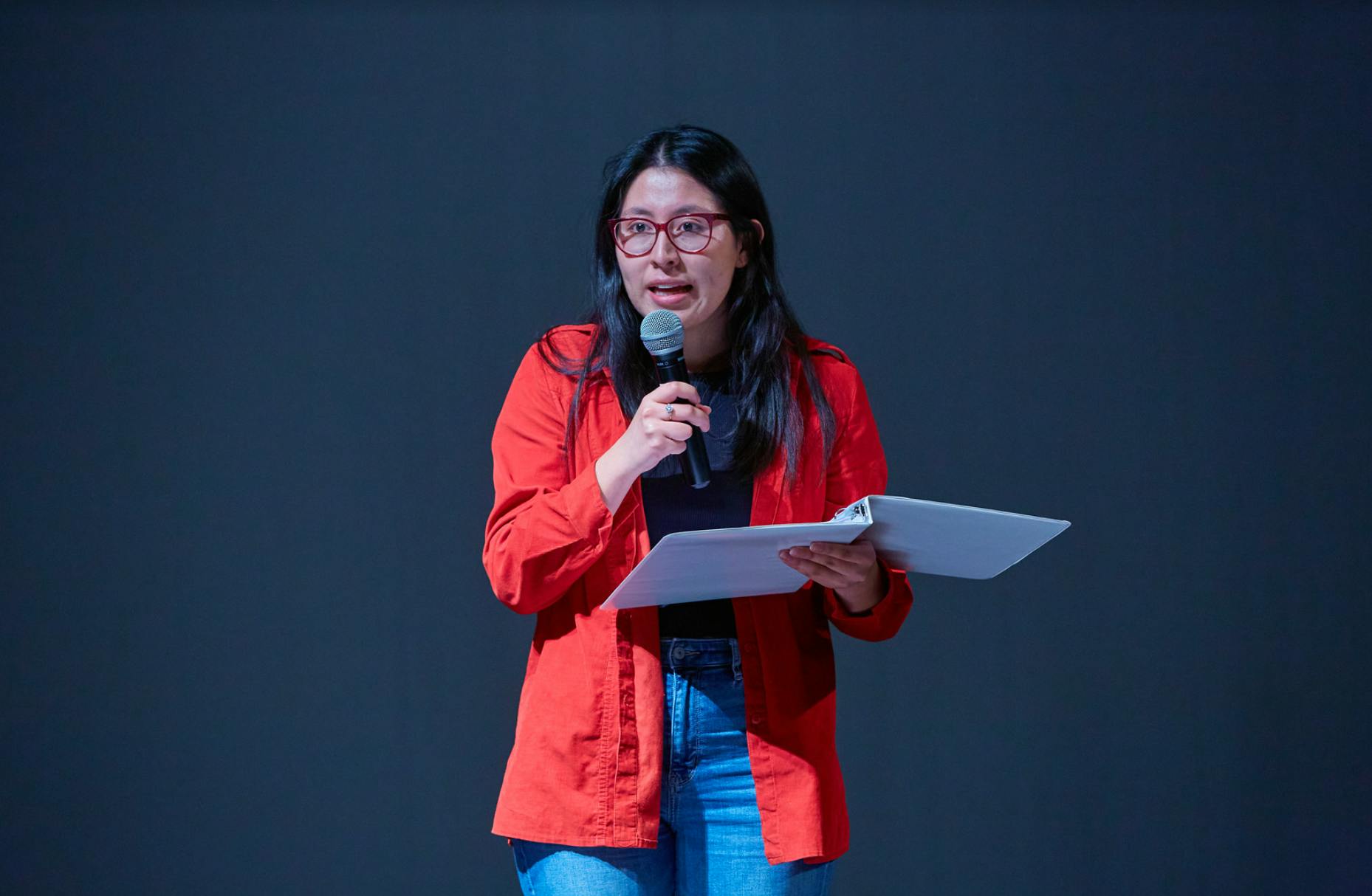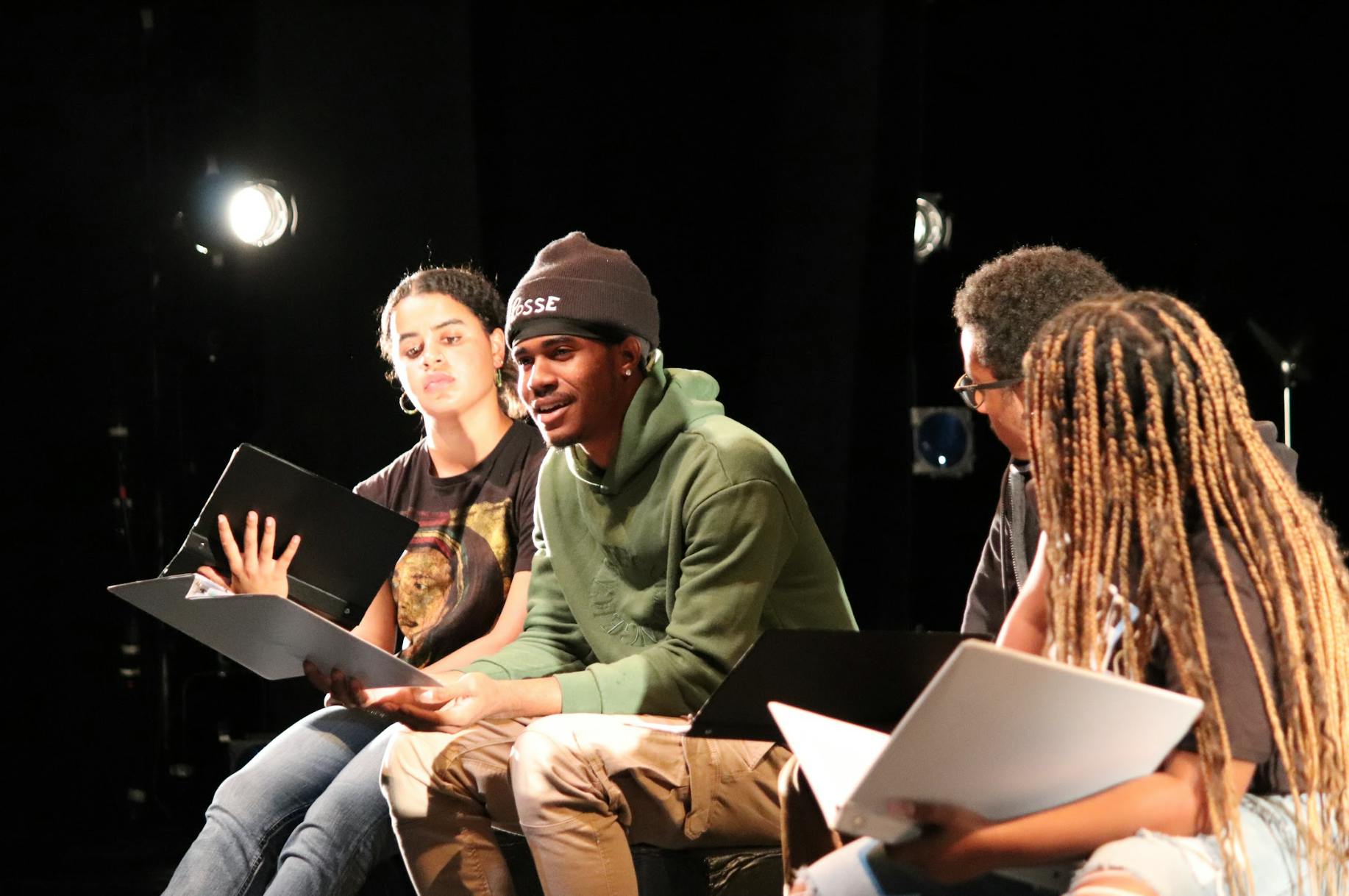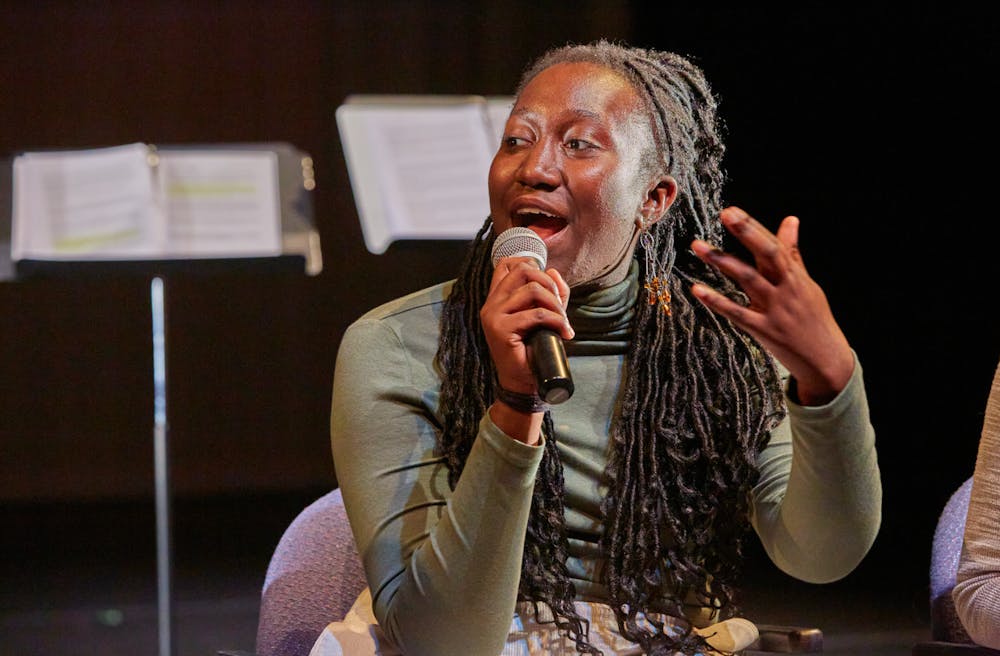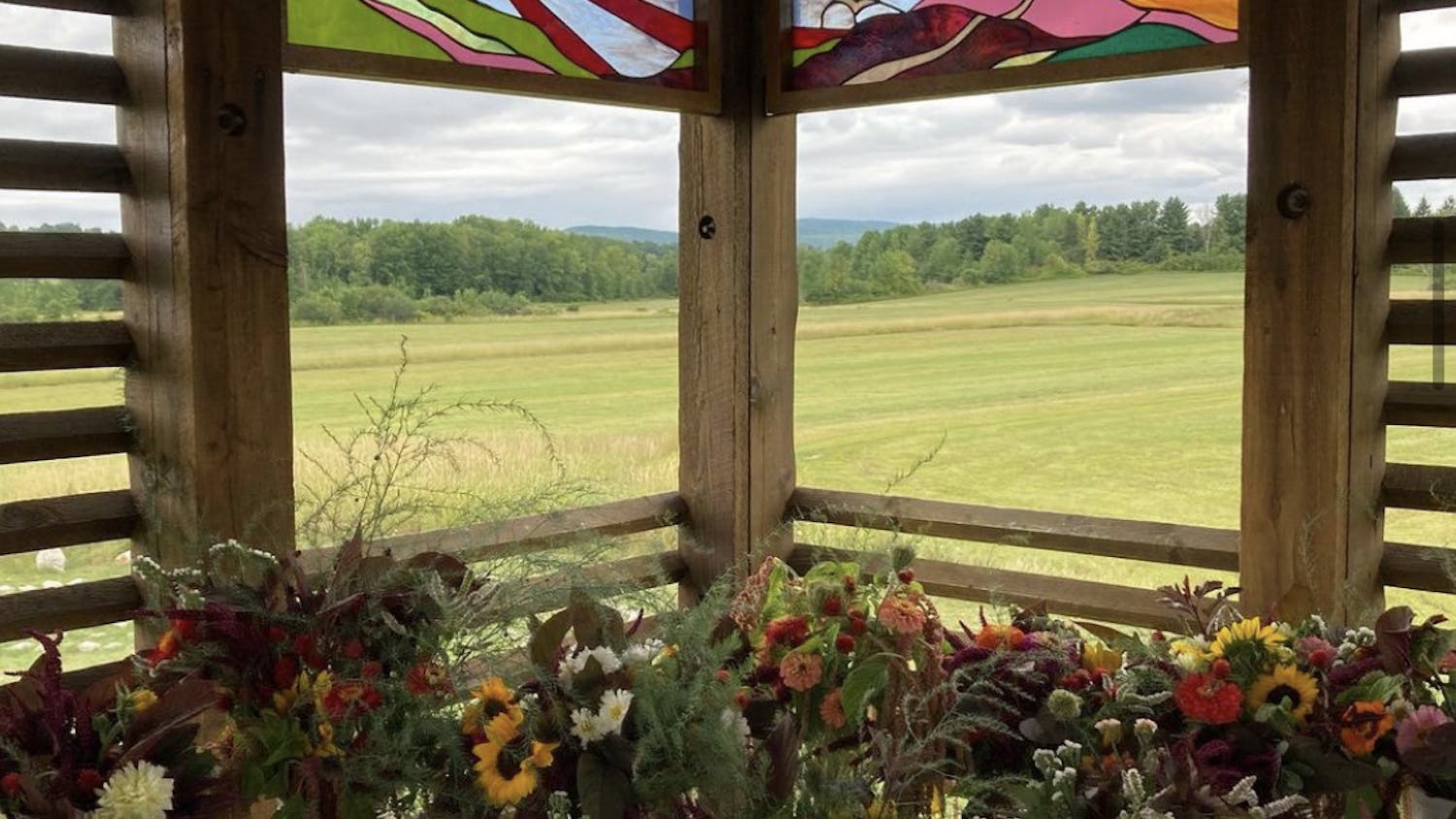What would an anti-racist Middlebury look like? “Freedom Dreaming,” a staged reading directed by Tara Affolter, associate professor of Education Studies, interrogated ways in which Middlebury could follow a path of anti-racism in classrooms on Oct. 28 and 29 at the Mahaney Arts Center Dance Theatre.
Onstage, seven actors dressed in their everyday outfits as they read and acted out lines sewn together from interviews conducted with predominantly BIPOC students on campus. The simple stage setup made it easier for audiences to immerse themselves in the words of the actors. With only black blocks for actors to sit or stand on and simple background visuals, the show skillfully painted experiences of marginalization and isolation of students of color on campus.
Meili Huang ’23 played Alice in the show, and although she was not personally interviewed for the compilation of the production, she saw resemblance between her lines and her lived experiences.
“Representation is that feeling when you see someone on stage, who looks like you, saying the things that you feel everyday on campus,” Huang said. “It’s crucial to be able to start asking those very difficult questions.”

Laura Rivera Martinez ’23, who played the role of Olaya, echoed the sentiment.
“I can relate to my character’s lines in many ways, like the idea of how professors can do harm but also be agents of change and drivers of anti-racist work in the classrooms,” Rivera Martinez said.
“Freedom Dreaming” found the perfect balance between casualness and seriousness.
In between scenes, actors danced to music curated by Malachi Raymond ’24. “I tried to capture the duality of facing systems of oppression [...] highlighting both the struggles and liberations that can come from it,” Raymond said.
The show balanced both humorous revelations about ridiculous racist incidents inside classrooms and weighty perspectives that question the deep-rooted racism in higher-education institutions and the way that they teach, from academic journals that refer to Black people just as “Blacks” to biology classes not mentioning the historical medical abuse of Black people.
In a cast predominantly made up of BIPOC students, Ben Knudsen ’23 played the role of Lucas, the only white character.
Reflecting on his role, Knudsen pointed out that Lucas is representative of those students and professors who are unaware of their own whiteness and the effects that their ignorance and acts of racism have on students of color.
“Freedom Dreaming” was provocative in that it forced discomfort within every single audience member. Actors asked audiences to join them in imagining a Middlebury that is committed to anti-racism. Audience members’ responses, written on notecards and collected during the show, were read out loud in between lines, prompting organic engagement and spontaneity in the production.
The show impressed Senna Gardner ’24 because it proposed actionable steps and ideas that would make Middlebury a more inclusive and safe space for students of color, such as requiring professors to indicate how their course specifically relates to anti-racism work.
“Anti-racism is an active process and that should be reflected in every curriculum across all departments,” Gardner said.
Affolter and Research Team Leader Charice Lawrence ’23 first conceived of the piece in January 2021, when they wondered what an anti-racist Middlebury would look like, sound like and feel like for students of color in an academic setting. The team interviewed more than 60 students, mostly students of color, and created scripts solely based on the interview transcripts.
Unfortunately, because of a Covid-19 outbreak on campus at the end of the semester, the production was canceled after the night of the final dress rehearsal. But in July 2022, the facilitators of the show recruited a new cast to bring back the production.
Affolter and Lawrence recruited their cast almost entirely through word of mouth. “[The actors] chose to be a part of this cast because of their freedom, dreams, hope and drive to push Middlebury on an antiracist path,” Affolter wrote in the director’s note.

Stage Manager Evelyn Magdaleno ’24 first learned about the production last year when she was enrolled in the class “Culturally Responsive Policy and Pedagogy” with Affolter. During the past summer, she was invited to join the crew by Affolter and accepted it because she aspires to be an educator.
Grace Mtunguja ’26 was initially hesitant to join the play because she had little experience acting. But after she learned more about the concept of freedom dreaming from Affolter, who also is her first year seminar professor, she decided to join the production. “I think this kind of work always needs to continue happening [...] when people actually start conversing, we will learn how to make a more just, inclusive and equal community,” Mtunguja said.
The cast began rehearsals in late September. Because of the shortened timeline, Affolter and Lawrence opted for a simplified version of the original production.
“It was a much more honest version of the script, even though it looked less of a professional production,” Lawrence said. “I genuinely really liked the actors having their books, because it reminds you that these are just students. It bleeds into the realness of it because, at the end of the day, the theater production is just a pathway into this information.”
The show left a complexity of emotions in audience members, be it anger or sorrow. But it ended on a hopeful note, encouraging faculty and students to work toward anti-racism.
“In addition to highlighting the struggle, I hope today’s show also points out possibilities,” Affolter said in her concluding remarks at the end of the show.
Organizers of the production are offering workshops to academic departments around the themes that emerged from the interviews.
“We really see ‘Freedom Dreaming’ as an entry point or a place to continue the work of anti-racism,” Affolter said. “This is ongoing work that requires humility and willingness to engage in powerful and sometimes difficult conversations. We hope faculty and staff join us on this journey.”

Rain Ji '23 is a managing editor of The Campus. She previously served as an Arts & Culture editor.
She is majoring in International and Global Studies with a concentration in the Middle East and North Africa. Previously, she studied abroad in Amman at the University of Jordan. Outside of academics, she enjoys watching Criminal Minds and skiing.




